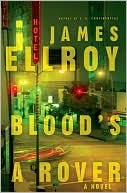Category Books
- Fiction Books & Literature
- Graphic Novels
- Horror
- Mystery & Crime
- Poetry
- Romance Books
- Science Fiction & Fantasy
- Thrillers
- Westerns
- Ages 0-2
- Ages 3-5
- Ages 6-8
- Ages 9-12
- Teens
- Children's Books
- African Americans
- Antiques & Collectibles
- Art, Architecture & Photography
- Bibles & Bible Studies
- Biography
- Business Books
- Christianity
- Computer Books & Technology Books
- Cookbooks, Food & Wine
- Crafts & Hobbies Books
- Education & Teaching
- Engineering
- Entertainment
- Foreign Languages
- Game Books
- Gay & Lesbian
- Health Books, Diet & Fitness Books
- History
- Home & Garden
- Humor Books
- Judaism & Judaica
- Law
- Medical Books
- New Age & Spirituality
- Nonfiction
- Parenting & Family
- Pets
- Philosophy
- Political Books & Current Events Books
- Psychology & Psychotherapy
- Reference
- Religion Books
- Science & Nature
- Self Improvement
- Sex & Relationships
- Social Sciences
- Sports & Adventure
- Study Guides & Test Prep
- Travel
- True Crime
- Weddings
- Women's Studies
Blood's a Rover (American Underworld Trilogy #3) »

Authors: James Ellroy
ISBN-13: 9780679403937, ISBN-10: 0679403930
Format: Hardcover
Publisher: Knopf Doubleday Publishing Group
Date Published: September 2009
Edition: (Non-applicable)
Author Biography: James Ellroy
James Ellroy was born in Los Angeles in 1948. His L.A. Quartet novels—The Black Dahlia, The Big Nowhere, L.A. Confidential, and White Jazz—were international best sellers. His novel American Tabloid was Time magazine’s Best Book (fiction) of 1995; his memoir, My Dark Places, was a Time Best Book of the Year and a New York Times Notable Book for 1996. His novel The Cold Six Thousand was a New York Times Notable Book and a Los Angeles Times Best Book for 2001. Ellroy lives in Los Angeles.
Book Synopsis
Summer, 1968. Martin Luther King and Robert Kennedy are dead. The assassination conspiracies have begun to unravel. A dirty-tricks squad is getting ready to deploy at the Democratic Convention in Chicago. Black militants are warring in southside L.A. The Feds are concocting draconian countermeasures. And fate has placed three men at the vortex of History.
Dwight Holly is J. Edgar Hoover’s pet strong-arm goon, implementing Hoover’s racist designs and obsessed with a leftist shadow figure named Joan Rosen Klein. Wayne Tedrow—ex-cop and heroin runner—is building a mob gambling mecca in the Dominican Republic and quickly becoming radicalized. Don Crutchfield is a window-peeping kid private-eye within tantalizing reach of right-wing assassins, left-wing revolutionaries and the powermongers of an incendiary era. Their lives collide in pursuit of the Red Goddess Joan—and each of them will pay “a dear and savage price to live History.”
Political noir as only James Ellroy can write it—our recent past razed and fully reconstructed—Blood’s A Rover is a novel of astonishing depth and scope, a massive tale of corruption and retribution, of ideals at war and the extremity of love. It is the largest and greatest work of fiction from an American master.
Publishers Weekly
Ellroy concludes the scorching trilogy begun with 1995's American Tabloid with a crushing bravura performance. As ever, his sentences are gems of concision, and his characters—many of whom readers will remember from The Cold Six Thousand and from American history classes—are a motley crew of grotesques often marked by an off-kilter sense of honor: stone bad-asses, in other words, though the women are stronger than the men who push the plot. The violence begins with an unsolved 1964 L.A. armored car heist that will come to have major repercussions later in the novel, as its effects ripple outward from a daring robbery into national and international affairs. There's Howard Hughes's takeover of Las Vegas, helped along by Wayne Tedrow Jr., who's working for the mob. The mob, meanwhile, is scouting casino locations in Central America and the Caribbean, and working to ensure Nixon defeats Humphrey in the 1968 election. Helping out is French-Corsican mercenary Mesplede, who first appeared in Tabloid as the shooter on the grassy knoll and who now takes under his wing Donald Crutchfield, an L.A. peeping Tom/wheelman (based, curiously, on a real-life private eye). Mesplede and Crutchfield eventually set up shop in the Dominican Republic, where the mob begins casino construction and Mesplede and Crutchfield run heroin from Haiti to raise money for their rogue nocturnal assaults on Cuba. In the middle and playing all sides against one another is FBI agent Dwight Holly, who has a direct line to a rapidly deteriorating J. Edgar Hoover (“the old girl”) and a tormented relationship with left-wing radical Karen Sitakis, and, later, Joan Klein, whose machinations bring themassive plot together and lead to more than one death. Though the book isn't without its faults (Crutchfield discovers a significant plot element because “something told him to get out and look”; Wayne's late-book transformation is too rushed), it's impossible not to read it with a sense of awe. The violence is as frequent as it is extreme, the treachery is tremendous, and the blending of cold ambition and colder political maneuvering is brazen, all of it filtered through diamond-cut prose. It's a stunning and crazy book that could only have been written by the premier lunatic of American letters. (Sept.)
Table of Contents
Subjects
 Political Thrillers
Political ThrillersThrillers
 Thrillers - Conspiracies & Cover-Ups
Thrillers - Conspiracies & Cover-UpsFiction Books & Literature
 Fiction Subjects
Fiction Subjects  Crimes - Fiction
Crimes - FictionFiction Books & Literature
 Fiction Subjects
Fiction Subjects  Literary Styles & Movements - Fiction
Literary Styles & Movements - FictionFiction Books & Literature
 Fiction Subjects
Fiction Subjects  Politics & Social Issues - Fiction
Politics & Social Issues - FictionFiction Books & Literature
 Thrillers
Thrillers  Political Thrillers
Political Thrillers
